I WANT
RELATED LINKS
I WANT
RELATED LINKS
RELATES LINKS
I WANT
RELATES LINKS
Services
Related Links
Use and Management of Cookies
We use cookies and other similar technologies on our website to enhance your browsing experience. For more information, please visit our Cookies Notice.
- Personal Banking
- Stories & Tips
- Tips for You
- Comparison of each card type for use in abroad
- Personal Banking
- ...
- Comparison of each card type for use in abroad
Comparison of each card type for use in abroad
29-01-2020
For those who have plans to travel abroad, there may be a question, between debit cards, credit cards, and cash cards, which one should be used. Let’s find the answer in this article.
Firstly, let’s see an introduction of each card as follows.
Debit Card
Debit Card is a card issued by the bank by binding the card with the cardholder's deposit account which can be used in various financial transactions via electronic systems or ATM. You can withdraw money, transfer money, request of balance inquiry and pay for various products and services through this debit card
Mostly, a debit card works like an ATM card. But there is another special method that can be used to spend like a credit card. But it will deduct the remaining funds from the account linked to that debit card instead.
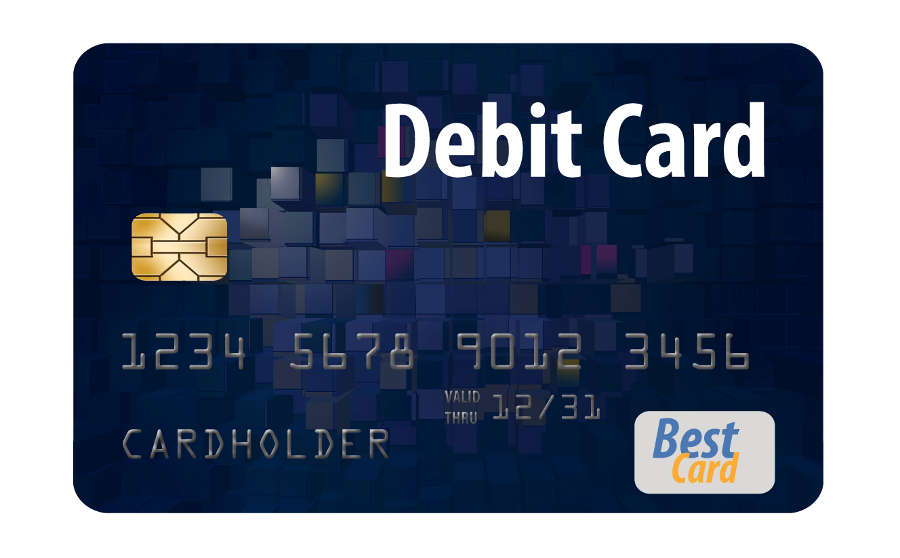
Advantages of debit cards
- You can easily withdraw cash from that country via ATM for Visa debit cards. Just look for ATMs with the VISA or PLUS logo.
- You can purchase products without paying fees. As long as you have money in the account of that debit card, you do not need to pay interest or being debtor like using a credit card..The easy comparison is like using cash in the form of cards.
Disadvantages of debit cards
- Spending with a debit card, the money will be immediately deducted from your account. Therefore, you need to have enough funds remaining in your account to cover all expenses while overseas.
- If there is an error, such as defective product or service is not as agreed then there is a need to cancel the payment. It will be very difficult to do cancellation and take a long time to get the deducted amount back.
- Cash withdrawal fee from ATMs in foreign countries is quite high. Therefore, please ask your card issuing bank for details before using a debit card abroad.
- There is a risk calculation from foreign currency converted in Thai baht at the rate of not more than 2.5 percent of the number of expenses incurred.
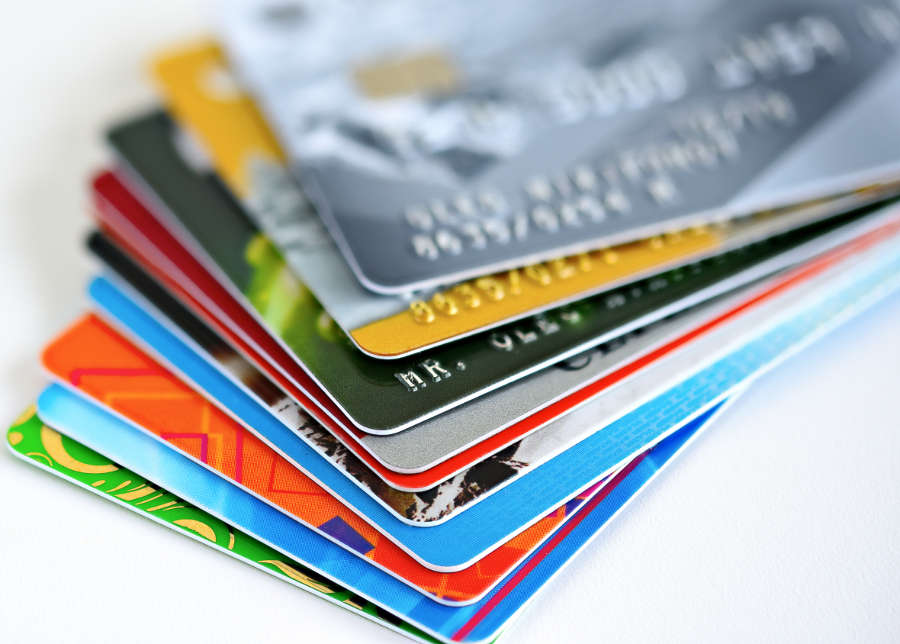
Credit Card
Credit Card is a short-term personal loan that the bank will give a certain amount of credit as specified by the bank. And you can use that credit every month to buy various products and services. There is a condition that you will have to pay the money spent on those purchases within the specified period (Interest-free period) and must pay interest and fees at the rate specified by the bank in case you pay later than the bank stipulates.
Advantages of debit cards
- It is secure to spend especially with expensive products because you don't have to carry a lot of cash.
- If you need to cancel the expenses, it is easier to do by receiving credits quickly into the account within 1-2 days.
- You can accumulate points through spending. Additionally, you will get extra points if spending abroad by some credit cards (More details of various promotions can be learned from credit cards of each bank).
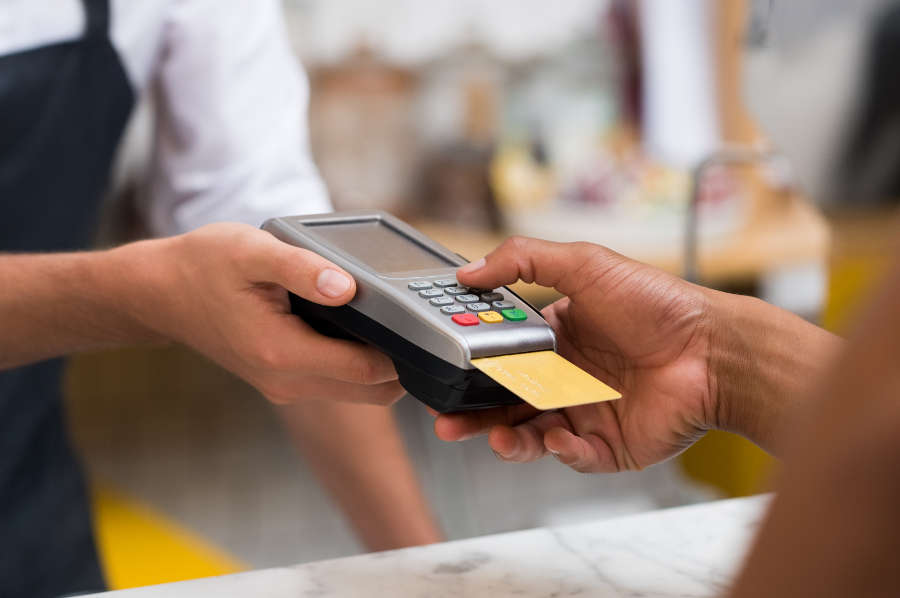
Disadvantages of debit cards
- There is a risk calculation from foreign currency converted in Thai baht at the rate of not more than 2.5 percent from the number of expenses incurred.
- In case of withdrawing cash via credit card, you need to pay a fee.
- If cardholders do not spend carefully or spend more than your payback capacity, they will pay for the high interest which becomes a high debt that may cause financial problems.
Cash card
The cash card is a type of personal loan which is in the form of cards, like credit cards. Cardholders can withdraw cash from the ATM only and cannot use to buy goods and services like credit cards. Calculation of interest for cash cards are different from credit cards which will calculate interest on a daily basis immediately and there’s no interest-free period. The cash card can be used as a revolving fund at all times when paying the refund amount into the account, then the money will be back.
Advantages of cash card
- Withdraw cash without fees. The amount you can withdraw depends on the limit approved by the issuing bank. This is different from withdrawing money from credit cards which you will have to pay a 3% cash deposit fee (but there may be a cash deposit fee overseas depending on each bank set).
- The cash card is considered an emergency limit in case you do not have cash and cannot pay with a credit card.
- If you do not withdraw cash from the cash card, you will not have debt and there’s no annual fee like a credit card. Therefore, the cash card is suitable for use as an emergency limit only.
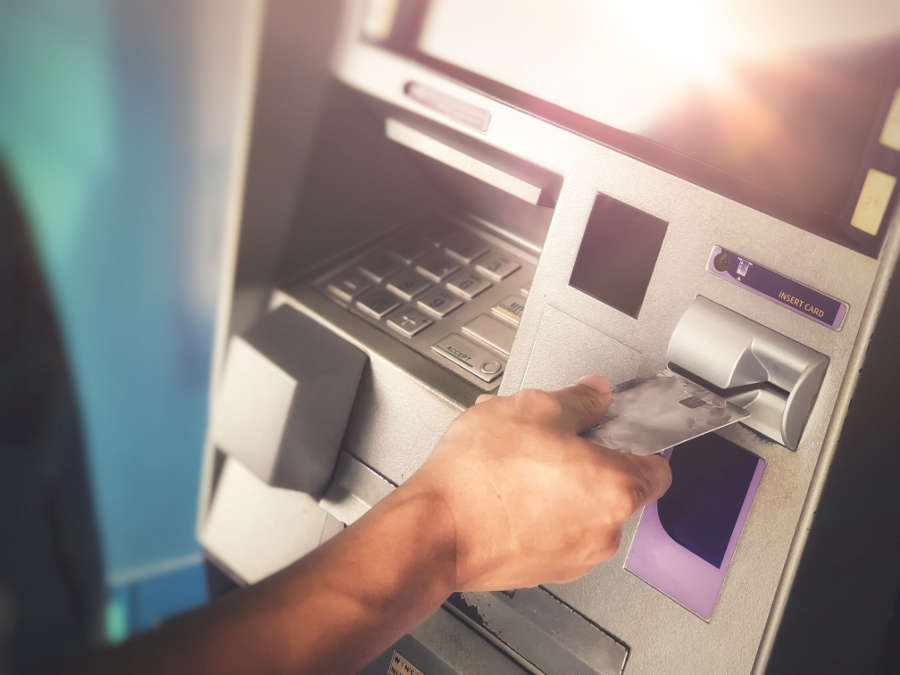
Disadvantages of cash card
- There is a high-interest rate, the highest interest rate of 28% per year and also daily interest rates (There is no interest-free period like a credit card), so even if you just cash out one day and payback in full amount, you will still have to pay interest anyway.
Card type | Advantages | Disadvantages |
Debit card |
|
|
Credit card |
|
|
Cash card |
|
|
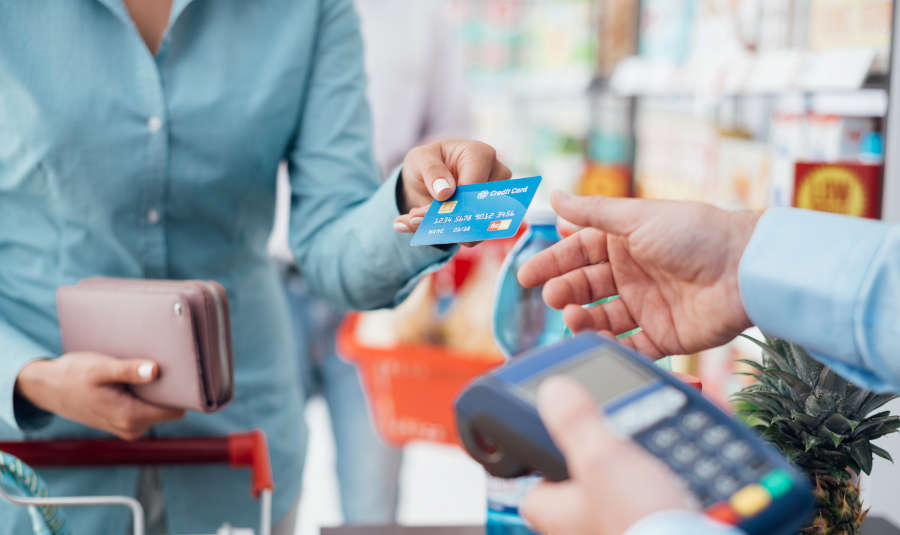
How to calculate the fee when using the cards abroad
- Change credit card amount to USD based on the exchange rate according to the transaction data according to the type of credit cards such as Mastercard, VISA card, Union Pay, AMEX or JCB
- Change US currency to Thai currency (Baht)
- When spending in baht, let multiply that number and multiply by 'Currency conversion risk' as specified by the bank (not more than 2.5%) will receive a risk-free
- Bring the spending amount in Thai Baht + risk fee. It will become the amount that has to be paid with all banks
Example of calculations
Mr. Mangkhang used the SCB Visa credit card to buy goods in England for £ 500 on 14 August 2019. Therefore, the money that Mr. Mang must pay back to the SCB credit card can be calculated as follows:
• Convert GBP to USD first by looking at the table in https://www.visa.co.th By looking at the exchange rate according to the day we made the transaction (14/8/62), where 1 USD = 0.831 GBP, so 500 GBP = 500 / 0.831 = 602 USD
• Convert the exchange rate from USD to THB, where 1 USD = 30.917 THB, therefore 602 USD equals 18,612 baht.
• The SCB Visa Credit Card specifies that the risk from currency conversion is no more than 2.5%. Therefore, take 18,612 baht multiplied by 2.5% equals 465.30 baht.
• The amount charged using the £ 500 SCB Visa credit card will be charged at 18,612 + 465.30 = approximately 19,077.30 baht.
The spending via each type of card has different advantages and disadvantages. If you have to travel abroad, please consider spending that is suitable for your lifestyle. Most important, do not forget to check the conditions of each card well before traveling abroad.
Nipapun Poonsathianrasap CFP,
Independent Financial Advisor, Writer, and Lecturer.
